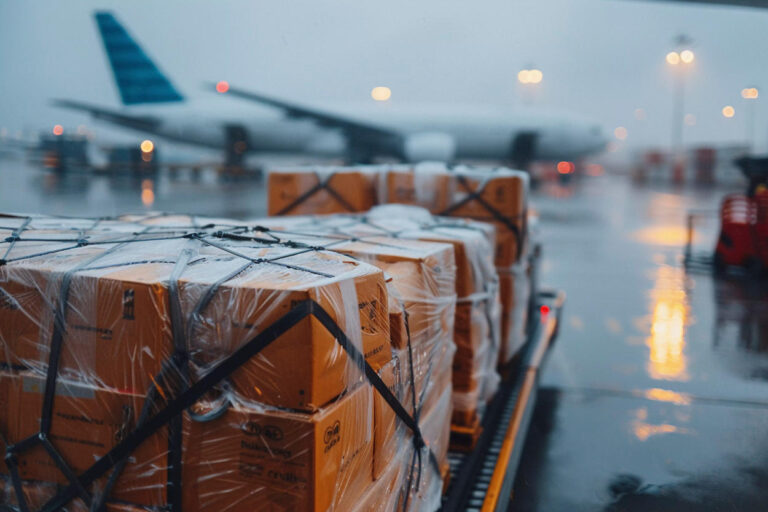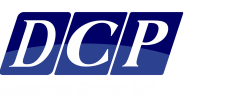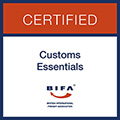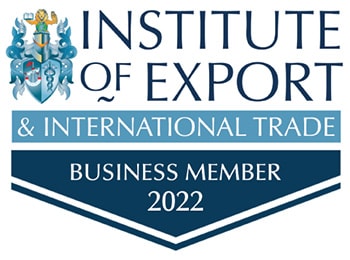Customs Clearance Gatwick
Navigating Customs Clearance at Gatwick Airport
Gatwick Airport, located just south of London, serves as a vital hub for international travel and cargo logistics. With its strategic position and advanced facilities, it plays a significant role in the importation of goods into the UK. For businesses and individuals looking to navigate the complexities of customs clearance, understanding the procedures and requirements is essential. This article will provide a comprehensive overview of customs clearance at Gatwick Airport, detailing the necessary steps, documentation, and tips for a smooth experience.
Understanding Customs Clearance
Customs clearance is the process through which goods are allowed to enter a country after they have been inspected and deemed compliant with local regulations. At Gatwick Airport, this process is crucial for ensuring that all imported goods meet the necessary legal and safety standards.
The Importance of Customs Clearance
Customs clearance serves several key purposes:
- Regulatory Compliance: Ensures that all imports adhere to UK laws and regulations.
- Revenue Collection: Facilitates the collection of import duties and taxes, which contribute to government revenue.
- Security: Helps prevent the entry of prohibited or dangerous items into the country.
The Role of Customs Authorities
The UK Customs authorities are responsible for overseeing the clearance process. They evaluate the documentation provided by importers and may conduct inspections to verify the contents of shipments. Understanding their role can help importers prepare adequately for the clearance process.
Documentation Requirements
Proper documentation is the cornerstone of successful customs clearance. Importers must ensure that all necessary paperwork is complete and accurate to avoid delays.
Essential Documents
The following documents are typically required for customs clearance at Gatwick Airport:
- Commercial Invoice: A detailed bill that outlines the transaction between the buyer and seller.
- Packing List: A document that lists the contents of the shipment, including quantities and descriptions.
- Bill of Lading: A legal document between the shipper and carrier that details the type and quantity of goods being transported.
- Certificates and Permits: Depending on the nature of the goods, additional certificates (e.g., health or safety) may be required.
Electronic Customs Declarations
To streamline the customs process, importers are encouraged to use electronic systems for submitting customs declarations. The Customs Handling of Import and Export Freight (CHIEF) system is commonly used for this purpose, allowing for quicker processing times and reduced paperwork.
The Customs Clearance Process
Understanding the customs clearance process can help importers navigate the complexities involved in bringing goods into the UK.
Step-by-Step Overview
- Preparation: Gather all necessary documentation and ensure it is complete and accurate.
- Submission of Declarations: Use the CHIEF system to submit electronic customs declarations.
- Customs Review: Customs authorities will review the submitted documents and may request additional information or clarification.
- Inspection: If deemed necessary, customs may conduct a physical inspection of the goods.
- Payment of Duties and Taxes: Importers must pay any applicable duties and taxes before the goods can be released.
- Release of Goods: Once all requirements are met, customs will release the goods for delivery.
Potential Delays
Importers should be aware that delays can occur during the customs clearance process. Factors such as incomplete documentation, inspections, or high volumes of cargo can contribute to longer processing times. Planning for these potential delays is advisable.
Security Measures at Gatwick
Gatwick Airport prioritises the security of all cargo shipments. Rigorous security measures are in place to ensure that all goods entering the UK are safe and compliant.
Security Screening Procedures
All incoming cargo undergoes thorough security screening, which may include:
- X-ray Scanning: Advanced imaging technology is used to inspect the contents of shipments.
- Physical Inspections: Customs authorities may conduct manual checks on selected shipments to verify their contents.
Importance of Security Compliance
Adhering to security protocols is essential for a smooth customs clearance process. Importers should ensure that their shipments comply with all security regulations to avoid complications.
Duties and Taxes
Imported goods may be subject to various duties and taxes, which are calculated based on the type and value of the items being imported.
Understanding Import Duties
Import duties are tariffs imposed by the government on goods entering the country. The rates can vary significantly depending on the classification of the goods. Importers should be familiar with the applicable rates to avoid unexpected costs.
VAT and Other Taxes
In addition to import duties, Value Added Tax (VAT) may also apply to imported goods. Understanding the tax implications of importing goods is crucial for accurate budgeting and financial planning.
Collaborating with Customs Clearance Agents
For businesses unfamiliar with the customs process, partnering with a customs clearance agent can be beneficial.
Benefits of Using a Customs Agent
- Expertise: Customs agents possess in-depth knowledge of regulations and procedures, ensuring compliance.
- Efficiency: They can expedite the clearance process by handling documentation and communication with customs authorities.
- Risk Mitigation: By ensuring accurate documentation and compliance, customs agents help reduce the risk of delays and penalties.
How to Choose a Customs Agent
When selecting a customs clearance agent, consider the following factors:
- Experience: Look for agents with a proven track record in customs clearance.
- Specialisation: Some agents may specialise in specific types of goods or industries.
- Reputation: Research reviews and testimonials to gauge the agent’s reliability and effectiveness.
Staying Informed on Customs Regulations
Customs regulations can change frequently, making it essential for importers to stay informed.
Resources for Updates
Importers can access various resources to keep up-to-date with customs regulations, including:
- UK Government Websites: Official government sites provide the latest information on customs policies and procedures.
- Industry Associations: Many trade associations offer resources and updates on relevant regulations.
- Customs Agents: Engaging with customs agents can provide valuable insights into regulatory changes.
Importance of Compliance
Staying informed about customs regulations is crucial for avoiding penalties and ensuring a smooth import process. Regularly reviewing updates can help importers adapt to any changes in requirements.
Conclusion
Navigating customs clearance at Gatwick Airport requires careful preparation and understanding of the processes involved. By ensuring proper documentation, staying informed about regulations, and considering the use of customs clearance agents, importers can facilitate a smooth and efficient experience. With Gatwick’s strategic position as a key entry point for cargo into the UK, businesses can leverage its facilities to optimise their import operations and contribute to their global supply chains.
This article provides a comprehensive overview of customs clearance at Gatwick Airport, ensuring that readers are well-informed about the necessary steps and considerations for a successful import experience.

Customs Service in Gatwick Airport:
1. Import Clearance
– Import Customs Clearance declaration processing
– Duty and VAT calculation and payment
– Compliance with UK import regulations
2. Export Clearance
– Export documentation preparation
– Customs declaration filing
– Adherence to international export regulations
3. Customs Consultancy
– Tariff classification assistance
– Customs valuation guidance
– Origin rules interpretation
4. Dedicated Support
– 24/7 customer service
– Personalized account management
– Rapid response to customs queries
5. Compliance and Risk Management
– Up-to-date regulatory compliance
– Risk assessment and mitigation strategies
– Customs audit preparation
6. Value-Added Services
– Temporary import/export handling
– Warehousing and distribution support
– Insurance arrangement assistance
Partner with DCP Logistics to experience seamless customs clearance in Gatwick Airport. Our expertise ensures your goods move swiftly and compliantly through customs, saving you time and resources.
To learn more, how we can optimize your customs processes, please contact us at:
Email: info@dcp-co.uk
Phone: +44 20 7846 6253
Website: www.dcplogisticsgroup.co.uk
Best regards,
Customs Clearance Specialists DCP Logistics Group Ltd
EXCELLENTTrustindex verifies that the original source of the review is Google. Absolutely fantastic service. Margaret made the entire operation sooth and stress free. Took care of all the details. Highly recommended!!!Posted onTrustindex verifies that the original source of the review is Google. I have been working with this company for over a year. They are very professional and reliable with great customer service. Open 24/7. Highly reccomend it.Posted onTrustindex verifies that the original source of the review is Google. Bardzo profesjonalna obsługa moich transportów do UK , zawsze dostępni i pomocni .Polecam
If your goods pass through customs in Gatwick Airport and you have decided to co-operate with our customs agency DCP Logistics, then call or use the contact form.
Phone: +44 20 7846 6253
Email: info@dcp-co.uk
Website: https://dcplogisticsgroup.co.uk





